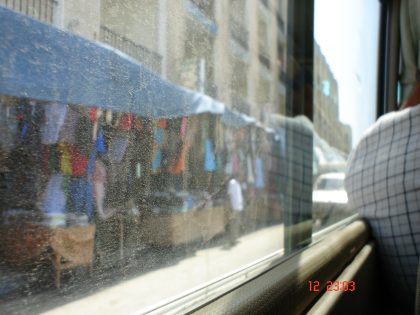
One of the last remaining pieces of history
Against Mahikeng’s failure to honor and preserve his legacy, a new Setswana biography examines Plaatje’s years in this South African town, once a regional capital.

Against Mahikeng’s failure to honor and preserve his legacy, a new Setswana biography examines Plaatje’s years in this South African town, once a regional capital.

If a better world is possible, let us meditate on its constituent parts—the institutions, communities, and relationships, argues Felwine Sarr.

The author reflects on books that offer a long-historical perspective on African literature and history.

In doing the intellectual activist work of editing and supporting cultural production, literary magazines have been crucial for Black cultural renaissance.

Does Afrobeats come from the continent or the diaspora. This reviewer of a new book on the genre's history and rapid takeover of our airwaves and playlists, argues we need to center Africa more.

The award-winning Djiboutian author, Abdourahman Waberi, shares his reflections on writing, power and living with a disability.

With its new edition, Penguin Classics disfigures Zimbabwean writer Dambudzo Marechera’s novel 'The House of Hunger.'

A book by writer Melissa Thackway and director Jean-Marie Teno highlights an ethical and politically engaged partnership between filmmaker and film critic.

The author of 'Now You Know How Mapetla Died,' a book on the murder of a leading Black Consciousness leader, writes about her research.

In its first few years, the magazine 'Révolution Africaine' opened possibilities for Franco-Algerian cooperation. It was then co-opted by the state.

Rwandan writer Scholastique Mukasonga chronicles life, death, return and grief in her story collection, 'Igifu.'

Anyone who has attempted to describe dance in writing knows how difficult it is. These books on dance on the continent and the diaspora gets close.

The writings of Ugandan lawyer David Mpanga are both literary and legalistic, rooted in African conceptions of storytelling and self-determination.

Despite its proud history, the South African Communist Party has recently taken a backseat in South African politics. Understanding its roots helps us understand how it got here and what it will take to be rejuvenated.

On the publication of his book on black life on the margins, the South African author reflects on work that expand the meaning of being black on the world.

A historical novel by Sudanese writer Abdelaziz Baraka Sakin narrates an unusual love story between a slave and a princess.

In his new book ‘The Blinded City,’ Matthew Wilhelm-Solomon takes readers into inner city Johannesburg not as it was or could be, but as it is.

If an author writes with empathy, precision and authenticity about experiences foreign to their own, they're a good writer and not a cultural appropriator.

Libyan writer Ibrahim Al-Koni’s latest novel is a philosophical retelling of the story of Amazigh queen Al-Kahina.

Revisiting the papers of left, anti-colonial revolt from the continent can remind us of messy, rich alternatives.